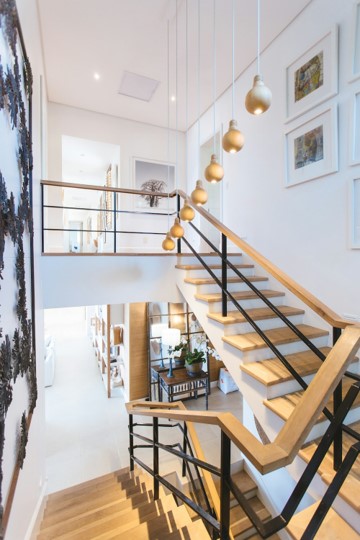The True Costs Of Owning A Home (That People Don't Want To Talk About)
For banks, the cost of owning a home is proportional to the size of the mortgage. The money you have to repay in debt to lenders is the price you pay.
But it turns out that the true costs of owning a home are substantially higher than many people realize. It's not just a matter of setting up a direct debit from the first month and leaving it at that. There are all sorts of other expenses involved.
The purpose of this post is to explain the true cost of owning a home. We go beyond the mortgage fees and look into all the costs associated with running a property. By the end of it, you should be able to reject conventional beliefs, such as the idea that the cost of running a home is around 1% of its value, or that you need to put aside 3% of your income for maintenance. Here's what you need to know:
The Time Commitment
The first thing most people don't talk about when it comes to the costs of owning homes is the time commitment involved. Managing a property can take up big chunks of your evenings and weekends, leaving you with less space to pursue other things, like a business or a side hustle.
This time commitment has real costs. It means that the actual amount of time you can spend doing the things that you really want to do with your life is less than you might think.
For example, suppose that you spend three nights a week working on your house and Saturday mornings maintaining it. That might not sound like a lot, but that could be upwards of 50% of your free time.
Even if you just spend one day per weekend working on your home, that's still a big chunk of time out of the average week you could spend doing something more exciting (unless you love working on the house, of course).
The point is that you need to factor your time into the equation. If that's valuable to you, then the cost of owning a home is significantly higher.
The Cost Of Utilities
When you move into a property, you also need to consider the cost of utilities. These tend to be higher than in rented accommodation because owner-occupied residences are bigger.
To calculate the cost of utilities, don't simply create a tally. Instead, measure how your costs deviate from the average for a home of your size. If the electricity rates are higher, for example, you can add that figure to the overall cost of ownership. If they are lower, you can subtract them.
Do the same for water and other costs if you pay them separately. Find out where the property sits on the distribution and think about how much it would cost to return it to average efficiency. You will usually find that the total expense is significantly greater.
Rising energy costs might also play a role in your calculation, too. If you are moving to a new area, it could be that gas and electricity are more expensive, forcing you to pay more to use it. Again, you'll want to factor this consideration into your calculations when evaluating the true cost of living.
Maintenance And Repair Work
Maintenance and repair work you do on properties can also be expensive. For example, it's not uncommon to pay close to a day's average wage just to get someone out to fix the door on your washing machine. That can eat into your returns, particularly if it happens often.
The problems that can arise in your home can be significant. Over time, you might notice leaks in the roof and cracks in the foundations, all of which could indicate more serious repair work from professionals.
There are roof repair experts who will get to the bottom of the structural problems you are facing and fix them, but they require higher payments. You can rescue a damaged roof, but the costs are usually significantly higher than simple depreciation metrics indicate.
If you want to make your roof last longer, some companies offer acrylic or silicone coatings to prevent solar and water damage. You can also get products, like Roof Maxx, for asphalt shingle roofs that infuse the material with more oil, helping to make it more flexible and resist UV damage.
Ultimately, though, maintenance and repair work is costly. It requires us to call someone out and get the work done.
Recurring Costs
On top of these expenses are all the recurring costs associated with home ownership. These can mount quickly and sometimes overwhelm your mortgage payments if you don't manage them properly.
For example, if you live in your own home, you will almost always have to pay property taxes (or the equivalent) to the local government. These transfers ensure they have the capital they need to continue paying for schools, roads, and so on.
You might also have to pay homeowner's association (HOA) fees. These go towards communal elements of the property, such as the front desk (if there is one), buildings, roofing, and more.
Another ongoing payment is private mortgage insurance. Some lenders require you to have this before they will hand over the keys. These policies provide money to the mortgage lender, even if you can't work.
Upfront Costs
Finally, you'll face various upfront costs when buying a house. These are often extremely expensive and eat into your overall returns.
For example, you may have to pay the mortgage company a mortgage service fee to make it worth their time setting up a credit facility for you to buy a home.
You may also face various appraiser and inspection fees. These give you (or your buyer) peace of mind, but they also add to the cost significantly, making it less appealing.
Finally, some homeowners face things like closing costs and title insurance. These additional fees might be included in your solicitor's price, or they could be separate. In any case, they add to your costs.
839GYLCCC1992





Leave a Reply